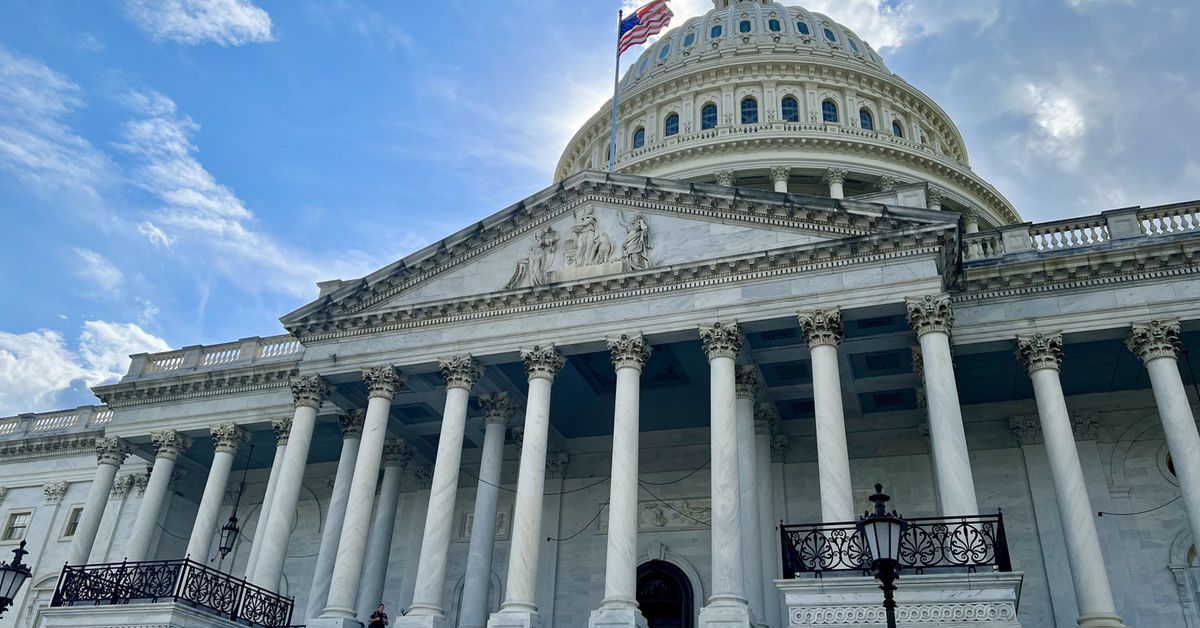Democrats pushed for a provision directing the U.S. Federal Reserve to move forward on a digital dollar, but the negotiations concluded with a new directive for another Fed study in this year’s ongoing legislative effort to regulate stablecoins, according to a person familiar with the talks.
A draft of the House bill, now circulating among lawmakers and the industry, won’t yet represent the authorization Fed officials have said they’re waiting for from Congress before they decide to issue a central-bank digital currency (CBDC). The federal government has been inching closer to such an approval, with the U.S. Treasury Department recommending in a recent report that work on a digital dollar should continue while the executive branch also comes to a decision.
The important – though potentially fatally timed – House legislation is also said to maintain a role for state regulators and squeezes the ability to issue algorithmic stablecoins, though it is likely past the point at which it can become law this year.
The lawmakers negotiating the legislation are close to releasing the language that will be considered by the House Financial Services Committee in a markup as soon as next week, according to people poring over draft language circulated this week. While a committee-approved bill would be hard-pressed at this late stage to clear the further hurdles required – passage in the full House of Representatives, then Senate approval – some of the compromises made in this version could survive if the bill is negotiated again in next year’s congressional session.
Read more: House’s Stablecoin Bill May Face Fatal Delays for 2022 Progress
Negotiations had progressed quickly at first, but the talks stalled during the summer. Committee Chairwoman Maxine Waters made a statement after that temporary impasse, saying the legislation would “require the Federal Reserve to research and develop a central bank digital currency.” The latest version only calls for the research.
A Waters spokesperson couldn’t be reached for comment.
Another of the sticking points for Republicans had been in maintaining a role for state regulators in overseeing nonbank financial firms issuing the tokens. The bill seems to have settled that issue by keeping the states involved in overseeing nonbank token issuers, which would also seek federal licensing. Banks issuing stablecoins would be supervised by their usual regulators.
Were the legislation to become law, it would mark the first major U.S. effort to regulate cryptocurrencies – even if it’s just one sector of the industry. Stablecoins are used as the less-volatile side of trades involving other crypto, and the tokens are usually tied to a steady asset such as the dollar.
“We’re running out of time in this Congress, but I’m very hopeful that the financial services committee might produce a stablecoin regulation bill,” Rep. Jim Himes (D-Conn.), a committee Democrat who leads one of its subcommittees, said in a recent CoinDesk interview. Himes said he’s hopeful that “if we don’t actually get anything done in this Congress in a few months remaining that in the next Congress, we’re in a position to do so.”
The midterm elections are now weeks away, which usually slams the brakes on new legislation.
“We do not see a path for Congress to enact stablecoin legislation this year as the Senate is far behind the House on this issue,” said Jaret Seiberg, an analyst with Cowen, in a Wednesday research note. “If the House votes, it will create a foundation for early action next year in the House regardless of which party controls the chamber.”
While a key Republican, Senator Pat Toomey (R-Penn.) had pushed a stablecoin bill with some similar provisions in the Senate this year, he’s retiring from that chamber at year’s end.
Stablecoins have drawn serious attention from lawmakers and regulators as a potential source of wider financial risk, even before the failure of algorithmic stablecoin TerraUSD (UST).
That spectacular collapse further cemented the federal government’s interest in regulating stablecoins, and algorithmic tokens were singled out as particularly problematic in the bill.
The legislation would generally require stablecoins to be fully backed by reserve assets. So-called “payments stablecoins” would be those supported by liquid assets, and their algorithmic cousins – referred to as “endogenously-collateralized stablecoins” – would be restricted. Existing algo tokens would be grandfathered for two years while new issuance is shut off for the same period while regulators study them.







